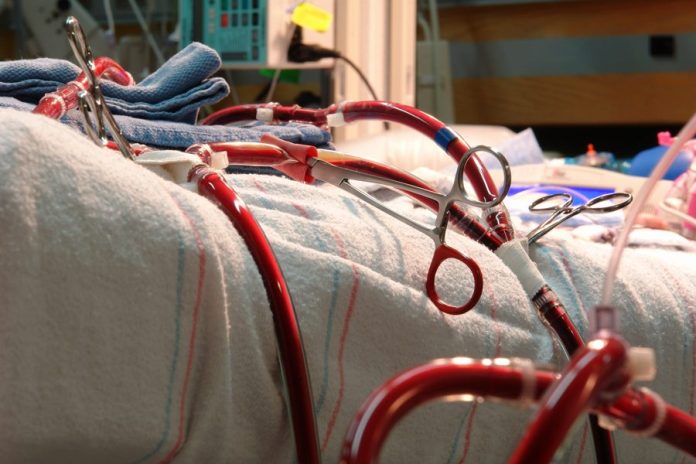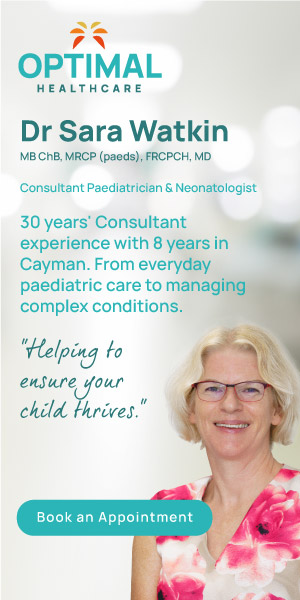The true risks associated with Covid-19 in unvaccinated pregnant women were brought into sharp focus by news from the UK that nearly 20 per cent of its most critically ill Covid patients are represented by this group.
Since July 2021, around one in five patients suffering from Covid and receiving treatment with a type of lung-bypass machine called ECMO were in fact expectant women who had not yet received their first vaccine dose. The data for women between the ages of 16 and 49 years, on ECMO in intensive care, is even more concerning, with pregnant women making up virtually a third (32%) of all cases.
Extracorporeal Membrane Oxygenation or ECMO is a treatment used in only the most severe of circumstances, when a ventilator cannot maintain oxygen levels due to the level of damage a patient’s lungs have experienced. Health chiefs in the UK are urging all mums considering getting pregnant or expecting a baby to ensure they get vaccinated to protect both themselves and their baby against Covid and England’s top midwife has again reassured women that the vaccine is safe and effective during pregnancy, not to mention recommended almost universally by clinicians.
A mum-to-be who spent nearly a month in an NHS hospital’s critical care unit after catching coronavirus during her pregnancy has also joined health chiefs in encouraging pregnant women to get the vaccine.
Claire said: “I completely understand the hesitation not to get vaccinated when you are growing a child inside you, and after experiencing two miscarriages before the pandemic, the fear of being pregnant again with the worry of Covid was sending my anxiety through the roof. But after what happened, I can honestly say that the risk of not having the Covid vaccine far outweighs any doubts about having it”.
A few days after testing positive for Covid in early July, Claire was admitted to her local hospital in the South East with difficulty breathing. She was put on a ventilator while in a medically induced coma, but her condition deteriorated, and with it continuing to get worse, Claire was transferred to another hospital in London. It wasn’t until early August, around a month after she was initially admitted to hospital, that Claire was allowed to return home.
At one point it looked like she might need to have an emergency c-section at just 26 weeks, a delivery sufficiently early that it carries significant risks of mortality or morbidity for the child. Thankfully, her care team in London managed to avoid this.
Commenting on the severity of illness requiring ECMO occurring in the Cayman Islands, Dr Madhavi Manoharan, OBGYN and Maternal-Fetal Medicine Specialist for Integra Healthcare Ltd, said “This severity of illness can develop very quickly. Patients with severe respiratory illness of this degree are more complex and riskier to transfer by air. We do have access to ECMO on Island but this scenario requires round the clock multidisciplinary management from intensive care respiratory specialists, maternal-fetal medicine specialists and potentially neonatal intensive care doctors if the infant is delivered early.”
She explained that: “The outcomes are not assured for either mother or baby. Integra in fact carries the expertise in both maternal-fetal medicine and neonatal care but myself, my tertiary OBGYN colleague, Dr Lisa Joels and my tertiary neonatal colleague, Dr Sara Watkin, despite our credentials, would all say that you do not want to be in this situation on an Island with limited facilities.”
Vaccine Safety in Pregnancy
The question that’s clearly on the minds of expectant mothers is one of safety. Examining the data on vaccinations in pregnancy shows that, from over 100,000 vaccinations in pregnancy in England and Scotland, and a further 160,000 in the US, there has been no subsequent harm to the foetus or infant.
Dr Lisa Joels, Specialist Obstetrician & Gynaecologist (OB/GYN) at Integra confirms that; “the Royal College of Obstetricians and Gynaecologists and the Royal College of Midwives have both recommended vaccination as one of the best defences for pregnant women against severe Covid-19 infection, while the independent JCVI confirms the jab has been shown to be effective and safe for women carrying a baby. I recommend getting vaccinated to all of my mums, and of course I am vaccinated myself, as are all of my medical and nursing colleagues.”
Dr Edward Morris, President of the Royal College of Obstetricians and Gynaecologists, said: “We are urgently calling for all pregnant women to come forward for their vaccinations. There is robust evidence showing that the vaccine is the most effective way to protect both mother and baby against the possibility of severe illness from Covid-19. The disproportionate number of unvaccinated pregnant women in intensive care demonstrates that there is a significant risk of severe illness from Covid-19 in pregnancy.”
“We do understand women’s concerns about having the vaccine in pregnancy, and we want to reassure women that there is no link between having the vaccine and an increased risk of miscarriage, premature birth, or stillbirth.”
RCOG Covid-19 vaccines, pregnancy and breastfeeding
The extensive data supporting safety and low complications and the severe threat that Covid represents in pregnancy, has led to strong opinions in favour of vaccination for pregnant women from those at the front line of care. The OBGYN Cayman team at Integra Healthcare Ltd is equally clear about the advisability of vaccination in pregnancy and this is despite having a tertiary pregnancy team including obstetrics, maternal-fetal medicine and neonatal medicine – the combined disciplines necessary to care for complex pregnancies, but this is a complexity that is best to be avoided in the first place.




